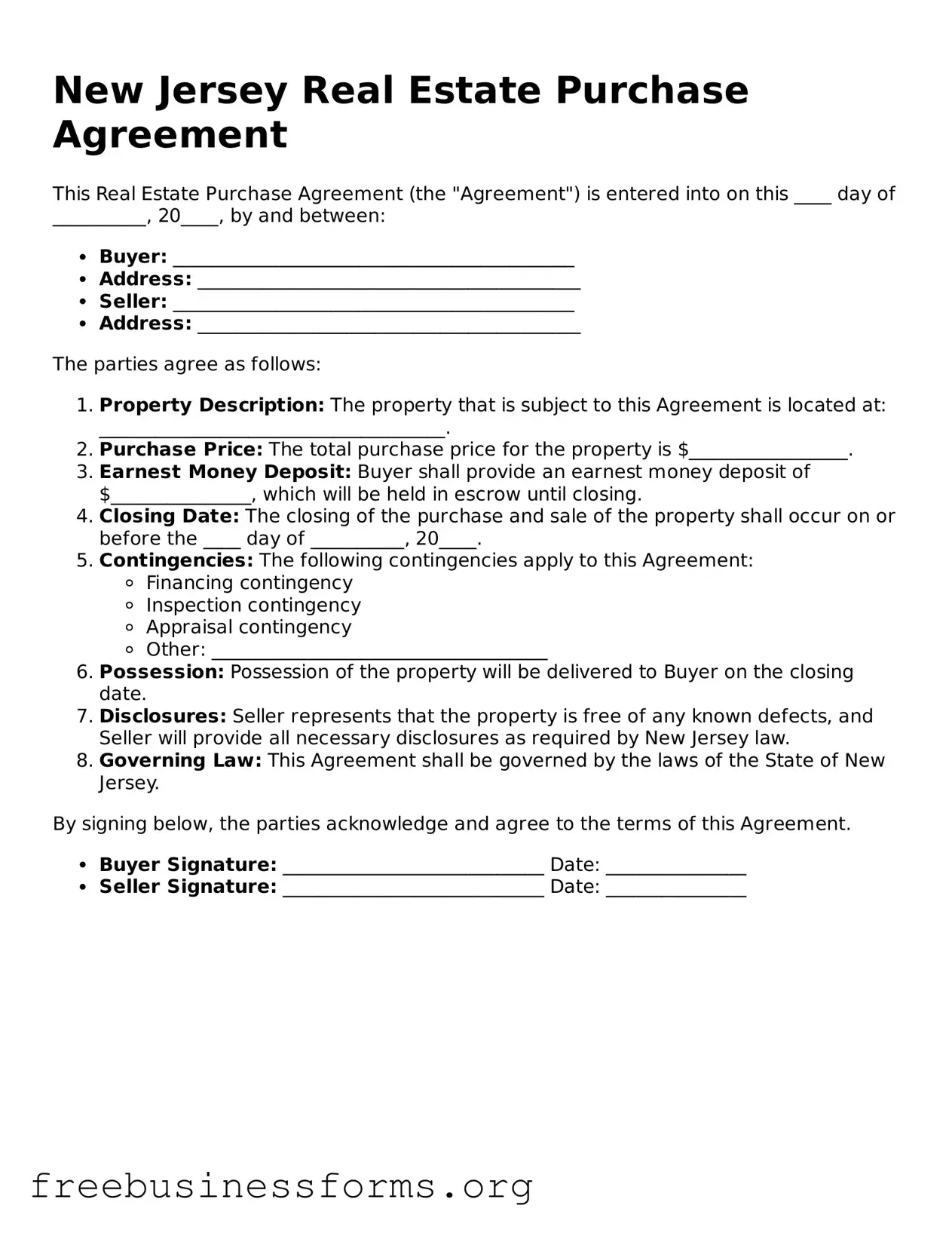Blank Real Estate Purchase Agreement Template for New Jersey
The New Jersey Real Estate Purchase Agreement is a legal document that outlines the terms and conditions under which real property is bought and sold in New Jersey. This form serves as a binding contract between the buyer and seller, detailing essential aspects such as purchase price, contingencies, and closing dates. Understanding this agreement is crucial for both parties to ensure a smooth transaction process.
Open Form Here

Blank Real Estate Purchase Agreement Template for New Jersey
Open Form Here

Open Form Here
or
↓ PDF File
Quickly complete this form online
Complete your Real Estate Purchase Agreement online quickly — edit, save, download.